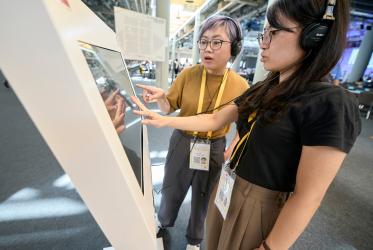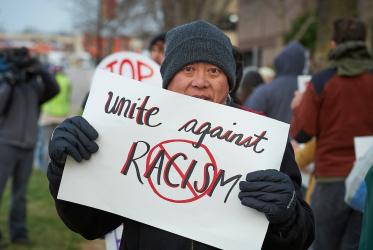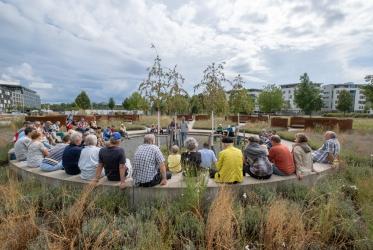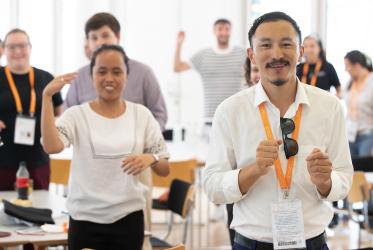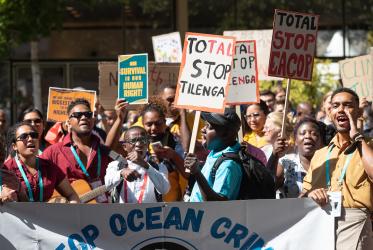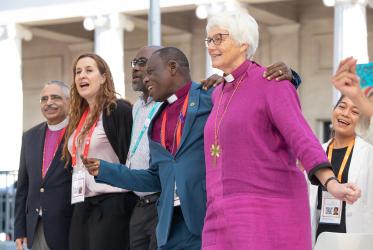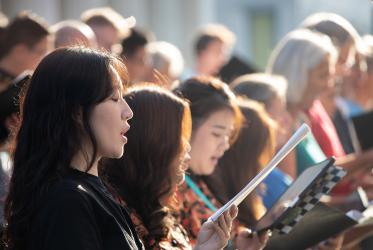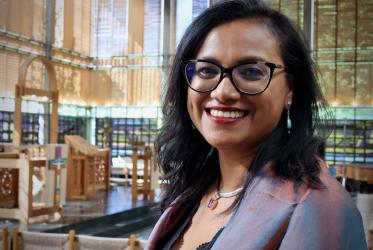Displaying 101 - 120 of 1294
GPS360º: A virtual assembly
26 September 2022
Workshop explores how interreligious dialogue brings trust and respect
15 September 2022
Reflections from GETI underscore friendship coupled with knowledge
13 September 2022
Dear future steward
08 September 2022
Uppsala 1968: The times, they were a’changing
06 September 2022
Multifaith advocacy for the climate: Not really much time left
04 September 2022
Health-Promoting Churches Volume III
Contextual Bible Studies on Health and Healing
04 September 2022
Morning prayer explores love for our neighbour
03 September 2022
WCC 11th Assembly opens—and “nothing can separate us from God's love”
01 September 2022
God’s Creation is celebrated in a gathering of waters
01 September 2022
A Hundred Years of Mission Cooperation
The Impact of the International Missionary Council 1921-2021
21 August 2022

